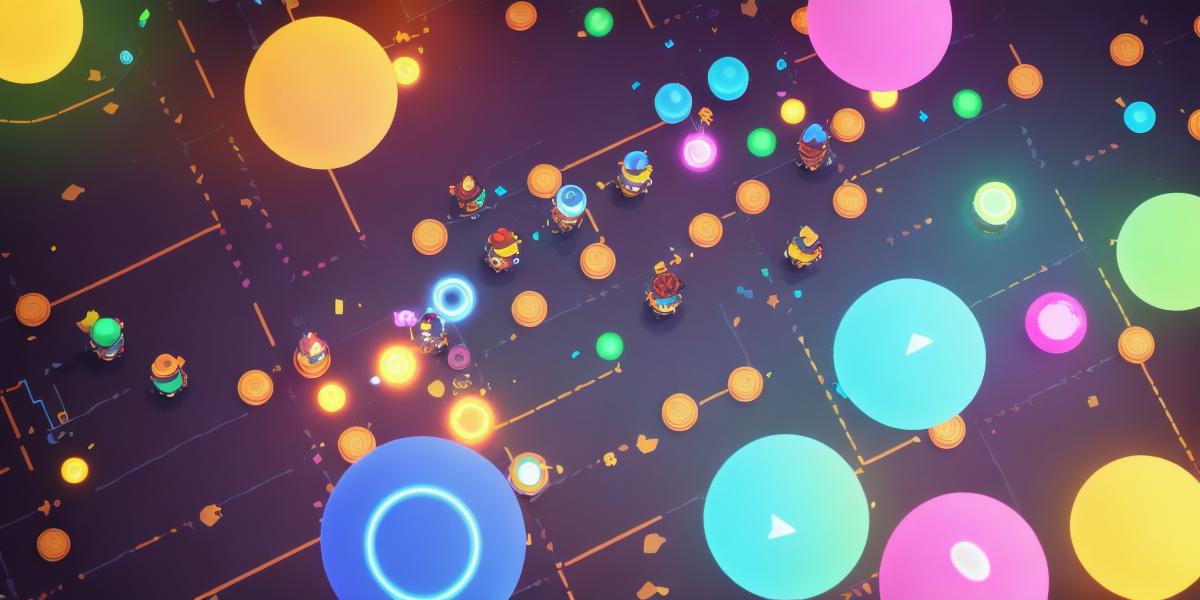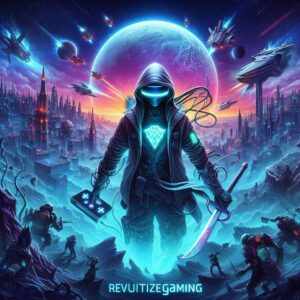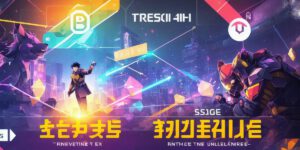NFT (Non-Fungible Token) games have become increasingly popular in recent years, and Godot is one of the most powerful game engines for developing these types of games. In this article, we will explore everything you need to know about Godot NFT game development, including its features, benefits, and how it compares to other game engines on the market.
What are NFT Games?
NFT games are a type of video game that utilizes blockchain technology to create unique, non-fungible tokens that can be bought, sold, and traded. These tokens often represent in-game items or collectibles, such as weapons, characters, or rare artifacts. NFT games have become increasingly popular in recent years due to the growing demand for unique and valuable digital assets.
Godot’s Features for NFT Game Development
Godot is a versatile game engine that offers several features for NFT game development, including:
Cross-Platform Support
Godot supports multiple platforms, including Windows, macOS, Linux, Android, iOS, and web browsers. This means that your NFT game can be played on a wide range of devices, making it accessible to a larger audience.
Built-in Scripting
Godot has a built-in scripting language called GDScript, which is similar to C and Java. GDScript is easy to learn and use, and it allows you to create custom logic and behavior for your NFT game.
Support for NFT Standards
Godot supports several popular NFT standards, including Ethereum’s ERC-721 and ERC-1155, as well as Flow’s Cadence. This means that you can easily integrate NFTs into your game using these standards, without having to create a custom solution from scratch.
Integration with Marketplaces
Godot integrates seamlessly with popular marketplaces for buying and selling NFTs, such as OpenSea and Rarible. This means that you can easily sell your NFTs to players and collectors, without having to build a custom marketplace yourself.
Benefits of Godot NFT Game Development
There are several benefits to using Godot for NFT game development, including:
Faster Development Time
Godot’s built-in features and scripting language make it easy to create complex game logic and behavior. This means that you can develop your NFT game faster than you would with other game engines that require more custom solutions.
Better Performance
Godot is optimized for performance, which means that your NFT game will run smoothly on a wide range of devices. Godot also supports advanced graphics and animation features, which can help bring your game to life in a visually stunning way.
Large Community Support
Godot has a large and active community of developers, which means that you can find support and resources for NFT game development. This includes forums, tutorials, and plugins that can help you create the features and functionality you need for your game.
FAQs
What is Godot?
Godot is a versatile game engine that supports multiple platforms and programming languages. It offers a wide range of features for game development, including support for NFTs and integration with popular marketplaces.
How do I create an NFT game using Godot?
To create an NFT game using Godot, you will need to choose a platform and integrate NFT standards into your game. You can then create custom logic and behavior using GDScript, and sell your NFTs through popular marketplaces.
Is Godot easy to use for NFT game development?
Yes, Godot is easy to use for NFT game development. Its built-in features and scripting language make it easy to create complex game logic and behavior, and its large community support means that you can find resources and assistance when needed.



